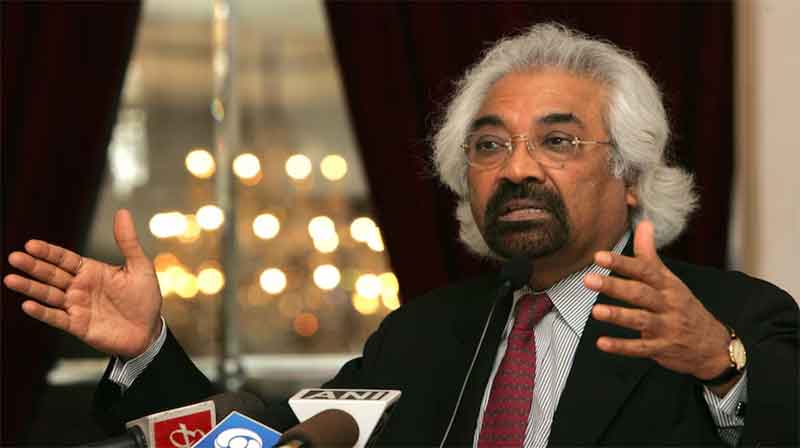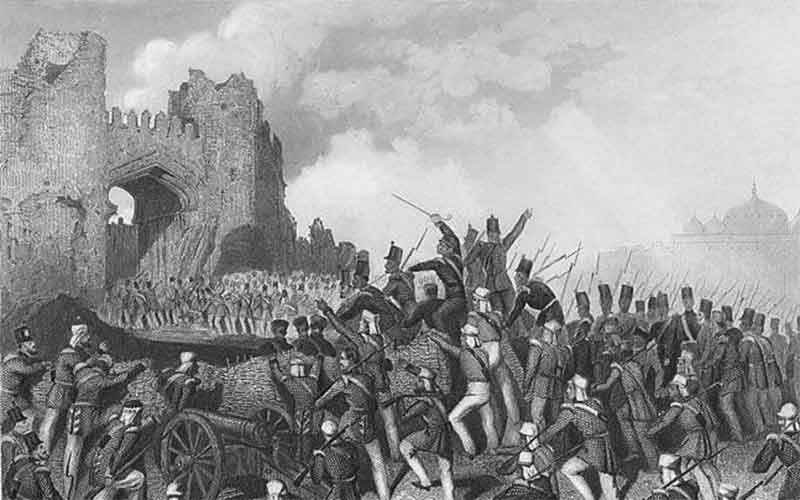Part 4. Mental escalators of violence in US policy and media makers – Part 4O. Fossil fuels and rivalry: US policymakers’ addiction to the “Great Game” leads to violence, wastefulness, death, and destruction
False Bias #15. US Policymakers Are Mentally Balanced, Spiritually Healthy, Intelligent Individuals Far Removed from Dishonesty, Greed, and the Coveting of Others’ Natural Resources, Who Really Care about Freedom, Democracy, and the Well-Being of You and I. US propaganda paints Russia’s military action in Georgia in 2008 as the usual US propaganda drama of evil, aggressive Russia vs. innocent, freedom-loving Georgia. However, in the last essay we talked about Georgia’s ethnic conflict, NATO expansion into Georgia, and keen US fossil fuel pipeline interests in Georgia that the US media for some reason neglected to talk about, perhaps because such facts would’ve exposed the good vs. evil script as fraudulent, they might have shown aggressive US interests in Georgia, and they might have made Russia’s perspective more understandable.
In fact, US policymaker covert coveting of pipelines running through Georgia from Azerbaijan to Turkey may have been at the root of the reportedly US-supported 2003 coup in Georgia, the militarization of Georgia, the push for Georgia’s NATO membership, and what some consider the US/NATO proxy war against Russia in Georgia and South Ossetia in 2008.
Keep in mind, Georgia can be paralleled to Ukraine, for just as NATO and US fossil fuel goals in Georgia were kept out of the US propaganda explanation of conflict in Georgia, they’re also kept out of the US propaganda explanation of conflict in Ukraine.
Getting Ukraine to seek NATO membership required the US-supported coup of 2014, and getting Georgia to accept US pipeline deals and NATO membership also required a coup: the so-called “Rose Revolution” of 2003.
According to investigative reporter Jeremy Scahill, it was the Bush administration that helped overthrow Georgia’s President Eduard Shevardnadze.[1]
In Freeing the World to Death, William Blum also describes how US policymakers and non-governmental organizations (NGOs) played an influential role in the 2003 coup in Georgia. He writes how US foreign policymakers and agents of NGOs
“pass information and experience from one country to another; thus the Soros organization—which has offices throughout the former Soviet Union—had people from Serbia, who had been involved in the successful campaign to oust Slobodan Milsevic in 2000, share their experiences with people in Georgia who were seeking to oust Eduard Shevardnadze in 2003, and were likewise successful. This transfer of techniques, including an acclaimed video shown on Georgian independent television, was cited by participants in Georgia as playing a vital role in their toppling of Shevardnadze.”[2]
According to the Chinese Foreign Ministry, which has detailed the involvement of the National Endowment for “Democracy” (NED) in numerous coups worldwide, NED played a role in the 2003 Georgia coup: “NED planned and participated in the entire process from ‘selecting’ opposition leaders and training the opposition to providing huge funds. After the revolution succeeded, NED continued to offer ‘generous funds.’ In 2004 alone, NED provided nearly 540,000 US dollars to 12 NGOs in Georgia.”[3]
But why, one might wonder, would US policymakers seek to topple Shevardnadze? Though formally a US ally, Shevardnadze had committed what US policymakers with immature psychologies always perceive as a sign of blasphemous malice: he’d increased his business with Russia. Shevardnadze’s plans with Russia amounted to granting drilling and pipeline concessions to Russia and blocking US policymakers’ Caspian pipeline dream. Although we’d never raise our children to pout if someone else gained at their loss, US policymakers evidently felt justified in supporting a coup in order to get their own way.
Note the similarity with the situation in Ukraine, where the Ukrainian leader, Viktor Yanukovich, who was going to make a deal with Russia was toppled in a US-supported coup and replaced by leaders willing to make deals with the European Union and NATO. According to US policymakers, “free and democratic” equates simply to getting their way, and so in a “free and democratic” world, no one makes a trade or military deal with another nation without first getting permission from US policymakers.
As Scahill and Michael Klare write, it was the Clinton administration that began the pipeline project, but with corrupt, unstable regimes in power in the nations bordering the Caspian Sea—regimes influenced by US policymakers’ enemy Russia, as well as proximity to US policymakers’ enemy Iran, the project was risky. It wasn’t until the Bush administration, when “oil executives were welcomed into the White House like cousins at a family reunion,” that the project really took off and construction began in September 2002. Scahill remarks on how the Bush administration tried to reduce dangers to the project from various potential enemies and:
“Made a number of moves that would result in at least one regime change in the region and the deployment of forces of Blackwater and other US war-servicing firms to protect what would be one of Washington’s most ambitious power grabs on former Soviet territory.”[4]
Notice that nothing was made of this ambitious power and land grab in the US media, who only describe ambitious power and land grabs as being initiated by people like Putin.
But the US Caspian pipeline dream were endangered by Shevardnadze himself. A June 2003 article on Eurasianet by Jaba Devdariani describes how Shevardnadze and Alexei Miller, CEO of Russia’s natural gas giant Gazprom, made a “handshake agreement” in May 2003 and announced they’d sign a new strategic partnership “committing the Russian conglomerate to multimillion-dollar upgrades to gas pipelines from Russia to Armenia and to Turkey.”
However, the Georgia-Gazprom partnership would compete with another pipeline project led by Anglo-American conglomerate BP and Norway’s state oil company Statoil. From what I’ve read about pipelines online, I imagine that Devdariani is referring to the Baku-Tbilisi-Ceyhan (BTC) pipeline owned by a consortium of 11 companies, including BP, and the South Caucusus Pipeline, owned by a consortium of 7 companies, including Statoil. US Ambassador Richard Miles was concerned about the partnership’s effect on these BP and Statoil pipelines, and so Steven Mann, a senior advisor to Bush Jr. on Caspian Sea issues, flew to Georgia, evidently to prevent the finalization of the agreement, since the US government is paid by our tax dollars to labor for the goals of the fossil fuel industry.[5]
Tatyana Zaharova of Neftegaz.Ru also describes the cooperation agreement between Shevardnadze and Miller, an agreement that would involve the revitalization of two gas pipelines, one running from Russia to Georgia-Adjara with a link to Turkey, the second running from Russia through Georgia to Armenia. She writes:
“Shortly after the announcement of the new cooperation, the United States of America reacted. US Ambassador Richard Miles met members of the Georgian government to express its concern that Gazprom would hinder the Baku-Tbilisi-Erzurum and the Baku-Tbilisi-Ceyhan pipeline projects. On 6 June, Stephen Mann, the US advisor on Caspian energy issues even mentioned the issue during his talks with Eduard Shevardnadze. The Georgian President was reminded to omit any actions which could hamper the construction of the east-west links.”[6]
Devdariani writes:
“For Georgia, a Gazprom deal carries several risks, including, as Mann’s visit would seem to confirm, incurring the displeasure of the United States. Washington is now Tbilisi’s main supplier of security assistance. Some political observers suggest a Gazprom pact could scuttle Georgian efforts to integrate into the NATO alliance.”[7]
Note that “incurring the displeasure of the United States” actually means “incurring the displeasure of certain Americans within certain social and business circles of the US who create foreign policy to serve themselves.”
Yet Mann’s apparent mission is precisely what Putin has been condemning in his speeches: the ability of the US to bribe and intimidate foreign national leaders into obeying and serving US policymakers. How can this power to interfere with another nation’s economic policies and trade decisions possibly be considered democratic and loyal to the wishes and well-being of that nation’s own people? Putin’s point is buried out-of-sight in the US media fiction that Putin is a war criminal seeking empire.
Yet, as Michael Meacher writes in The Guardian, the BTC pipeline, whose primary contractor for engineering, procurement, and construction was Bechtel, is an “environmental, political, and economic timebomb” that has run over the civil rights of people throughout the corridor in which it has been built. It travels through more than a dozen active faults, ripe for earthquakes, in Azerbaijan, Georgia, and Turkey. Safety concerns were raised by faulty materials used in construction. Expropriation of land occurred even before agreements had been made over compensation. Mineral springs sources are now jeopardized. And, to top it off, the BTC consortium “concluded an unprecedented agreement with the Turkish government that . . . grants them a power over the corridor overriding all environmental, social, human rights or other laws. In effect, it strips local people and workers of all civil rights.”[8]
How can these people not feel ashamed? Can you imagine raising a child and teaching them to take their neighbors’ possessions, dig up their yards, poison their water, and then force them to move? Why is this behavior not recognized as unacceptable on the international level of relations? Why is BTC consortium repeating what the US government did to the Native Americans for the sake of personal profits from railroads, mining, and territory? If the BTC consortium were engaged with us in cooperative dialogue, how would they defend their perspective and actions? Do they find this essay inaccurately or unfairly skewed against them? Do they care about the people whose land they took? Why do they so fervently seek to build pipelines, even though it risks tremendous hostility and violence as well as environmental damage? What do they have to say for themselves?
The enormous hypocrisy here is that US policymakers continue to accuse Putin of being the undemocratic one! And this free-market capitalism, this freedom of private consortiums to dictatorially strip people of all their rights, to be bigger than big government and use government as their servant, to topple leaders who won’t make deals with them, to take away people’s land and clean water, to subject people to even greater harm from an earthquake thanks to the presence of pipelines—all this is the beautiful, predatory freedom we’re taught to adore and spread to other lands, through coups, economic sabotage, and invasions!
Meanwhile, Mann, who was “heavily involved in realizing the Baku-Tbilisi-Ceyhan (BTC) pipeline and in the successful launch of the Caspian Sea Consortium (CPC) line,” joined Exxon Mobil Corporation’s International Government Relations group in 2009.[9] Such movement from government to business as well as to the military is extremely common in the US government, making the submissive submerging of US foreign policy and the submerging of the American and foreign populations’ interests to the interests of business deceptively seem to its players like a win-win, symbiotic merging.
It should come as no surprise to those who know the ways of US foreign policymakers that Shevardnadze was forced to resign in November 2003 in the “Rose Revolution,” and a pro-US regime came to power. As Scahill describes:
“In 2003, the Bush administration helped overthrow the government of a longtime US ally, President Eduard Shevardnadze of Georgia. . . . The first telephone call the new acting president, Nino Burdzhanadze, made when she took over from Shevardnadze was to oil giant BP to “assure them the pipeline would be OK.”
Consequently, the Caspian pipeline dream was back in action. But not only that, US policymakers initiated another Cold War move with the covert seizing of Georgia from Russia’s sphere of military, political, economic, and social cooperation: Russia’s bases in Georgia were closed, US policymakers increased military aid to Georgia, Georgia sent 500 troops to Iraq to support the US invasion and occupation, and US policymakers presumably were grinning from ear to ear and high-fiving over the victory of those now meaningless words: “freedom, liberty, and democracy.”[10]
US policymakers should be using our taxes to research alternative forms of energy or to refocus on muscle energy, but instead, Michael Klare remarks, Georgia became in essence a US military protectorate:
“We’ve poured hundreds of millions of dollars into beefing up the Georgia military. And this is unmistakable in the State Department and military—Department of Defense justifications for arming the Georgia military, specifically to protect the BTC pipeline against sabotage and attack. So looking into the Pentagon and State Department documents, there’s no question that this is about energy security, not about democracy or human rights or the other justifications that have been given.”[11]
Is there definitive proof that US policymakers caused the overthrow of Shevardnadze and ushered in their own puppet? What words and actions did the National Endowment for “Democracy” and the Soros organization take with regard to Georgia?
What’s entirely immoral as well are the double standards. If two American companies were competing within the US for a market, they wouldn’t be allowed to launch a coup in order to get a US president in power who’d promote their corporation. So why do US companies think they have some special right to strongarm foreign nations? Because they’re foreigners? Does that mean they’re beneath Americans? They’re not deserving of equal or greater dignity, respect, and justice?
With at least three sources pointing to US collusion in the 2003 Georgia coup, can the matter of US involvement be honestly and vigorously scrutinized in national and international hearings and publicized in the media? Since we’re talking here about the political interference in the form of an actual physical coup rather than political interference in the mild form of social media information targeting potential voters, can the topic of US interference receive about ten thousand times more attention than the attention paid by US policy and media makers to alleged Russian “interference” in the 2016 US presidential campaigns?
The degree of activity of greedy US hands in the Caspian Sea region goes much further than that even, and includes, for example, the role of former Secretary of State James Baker as “a senior partner in the law firm of Baker Botts, which is deeply involved in the fight for the oil and gas of the Caspian Sea” and also his role as “senior counselor to the powerful investment firm, the Carlyle Group.” Isn’t it a major conflict of interest to have a person who’s involved publicly with foreign policy also involved privately with investments and fossil fuels? Yet the personnel compositions of US administrations are based upon these very conflicts of interest! Baker was also sent out to talk to Shevardnadze in July 2003 about the necessity of having “free and fair elections,” just months before Shevardnadze was overthrown.
As Mark Ames reports on Democracy Now!, what was totally inconsistent and hypocritical about Baker’s visit was that Georgia was one of the most democratic nations in the region, especially compared to the authoritarian and brutal regimes of Uzbekistan, Kyrgyzstan, and Azerbaijan. Ames states, “In fact, Uzbekistan is known for boiling its dissidents alive. We have never complained about, or to this extent, we have not complained about massively rigged elections and democratic processes there.” If Uzbekistan is boiling people and Georgia is more democratic than other nations in the area, why would Baker single out Georgia as a nation needing his admonition to hold “free and fair elections”? What was Baker really doing there?
Of course, elections, no matter how “free and fair,” are irrelevant and a total farce with regard to democracy if Georgia’s policy decisions and national leaders are forced upon it by US policymakers. Yet even the “free and fair” elections bit seemed to be a cloak to disguise the real motivation for the visit: US foreign policymakers were angry that Shevardnadze had decided to sell a large portion of the energy grid and system to Russia. And so, the US decided Shevardnadze would have to go.[12] Was Baker sent there to threaten or bribe Shevardnadze or to work on his ouster?
Whether or not US policymakers were definitively involved in engaging in mafia-like practices to make Georgia’s government behave the way it wanted, shouldn’t hostility, coups, and invasions provoked by rivalry for fossil fuel access be a matter for the International Criminal Court or some sort of Natural Resources Sharing and Conservation Non-Violent Conflict Resolution Program? Shouldn’t US foreign policymakers be old enough to handle the issue of sharing resources in a mature way? Can’t it all be done fairly, taking into account the various needs of various nations and of the environment? Why this shameful “me-first” behavior? Aren’t US fossil fuel corporations wealthy enough?
And why on Earth is anyone even engaged in trying to access more fossil fuels when Greenland is melting, sea levels are rising, and land and ocean habitats are being irreparably destroyed by pollution?
Notice the role of NATO in all this. The NATO alliance seems to require of Georgia, as it did with Ukraine, the severing of major economic ties with Russia. How convenient for the US fossil fuel industry! Again, while we’d never raise our children to require their friends to cut off relations with other people, we’d never teach them to demand of their friends that they exchange words and gifts only with people of their own choosing, US foreign policymakers with their control mania evidently believe they have this right and that it is smart and clever of them to push this rule onto other nations.
From what I can see, NATO—like its master, the US government—does not allow any nation to be friends with both itself and with Russia. After all, such an agreement would not only spell out fewer profits for US corporate leaders but it would undermine the permanent state of conflict that NATO needs to justify its existence and to keep a state of hostility brewing that can then serve as a pretext for military, political, and economic attacks against Russia. Sounds like NATO is more than just an innocent, defensive military organization, now, doesn’t it? It seems to be more of a weaponized tool to serve the expanding aggression of the greedy, the obsessively anxious, and the pathologically control-oriented.
In fact, in his article, “Chomksy and the United Nations Warn of Collapse,” Robert Hunziker quotes Chomsky: “It’s not widely known but in the post-Cold War era NATO formally undertook an expanded mission based upon the following dictum by the Secretary General: ‘To guard pipelines that transport oil and gas that is directed for the West and more generally to protect sea routes used by tankers and other crucial infrastructure of the energy system’ (Source: NATO Secretary General Jaap de Hoop Scheffer, 2004-09, outlining NATO’s mission at NATO conference).”[13]
So NATO isn’t just about protecting Europe, the US, and Canada, it’s about defending any pipelines that these nations have built anywhere in the world, and, apparently, defending any pipelines that these nations want to build anywhere in the world—thus the need to topple Shevardnadze so that the US, not Russia, could build the pipeline, thus the free reign to interfere worldwide. If anyone’s looking for a recipe for continuous war, this is it. Once Georgia had the US pipeline in the pipeline, Georgia could join NATO because NATO, as the strong arm of the greedy, now had a compelling reason to want Georgia under its protection and in its clone empire.
Notice that NATO’s mission does not seem to be subject to any sort of popular evaluation, popular, democratic control, or voter opinion in the form of a referendum. It is out of our pathetically weak democratic reach, despite the fact that NATO is laughably advertised as a force promoting democracy. What do NATO officials have to say about this? What is their perspective? How would they defend their actions? Are there any points within this essay that they’d agree with? What do they disagree with?
While wanting to protect pipelines may seem reasonable at first glance, you have to question why they’re in such need of protection: what type of conflict and hostility was provoked by building and possessing those pipelines? If the pre-pipeline construction conflicts were resolved fairly rather than muscling and bribing and coup-ing and expropriating one’s way to victory in getting one’s own pipelines in place, maybe one wouldn’t have to hire NATO and private military contractors such as Blackwater to protect the damn pipelines from people who are angry they were built.
Isn’t the desperate need for security an indicator that enormous problems in human relations, justice, and democracy are being trampled to the point that hostility is evoked? Again, what is NATO’s opinion about this? What is the Pentagon’s opinion? Do they perhaps agree that forcing projects upon other lands is a recipe for unnecessary hostility?
Nations, governments, and pirates used to battle over trade routes centuries ago. England and France waged deadly battles over ownership of North America and its resources. They didn’t care that they were sucking the local Native Americans and New England settlers into their wars. They didn’t care that beavers were dying just for their pelts for European hats and the fur trade. The sugar trade was another profitable industry that provoked strongarm tactics and violence in Hawaii and Cuba on the part of a US government-businessman alliance. Greed for profits blinded hearts and minds to the suffering and injustice of their actions. And now, since about WWII, fossil fuels have been considered by US policymakers to be a topic worth fighting over, and US policymakers aren’t concerned that Ukrainians, Georgians, and Russians are dying over US cravings for energy markets or that numerous species of life are dying out because of the pollution and habitat loss.
Quite frankly, if having pipelines and other possessions abroad is developed at the cost of the environment and at the cost of people’s lives, if having pipelines and possessions abroad becomes an excuse for having military power abroad to protect those pipelines and possessions, then I suggest not having pipelines and possessions abroad at all. Let the locals decide who will build the pipelines and who will protect them, if they want the polluting things at all.
And by all means, don’t use our taxes to support the installation and military protection of these pipelines. Why should we subsidize the fossil fuel industry, especially when we’re not even asked our opinion on the matter? “No taxation without representation” was one grievance the American colonists had against the British Empire. Even though that fundamental principle of democracy went down the drain more than a century ago, we’ve got to get it back in action.
While US policymaker and businessmen access to pipelines is an issue of wealth, that access to wealth and economic power can then be wielded as a powerful tool of political power. US policymakers seem to glory in their ability to sanction other nations literally to death—to use their power over finances, trade, and resources to strangle another nation’s people, as it did quite lethally to Iraqi men, women, and children for more than a decade after the Persian Gulf War, or simply to make another nation’s economy scream in order to promote unrest, a violent coup, and subsequent decades of brutality, as it did to Chile.
But while US policymakers consider it moral and responsible for them to have the ability to wreak economic havoc on other nations in order to make them obey US policymaker instructions, they seem to consider it dangerous and barbaric for another nation, such as Russia, to ever have anything close to this power, or even to have the basic power to fend off US policymaker attempts to kill it economically. Any nation that’s economically independent from the US government, any nation that can’t be terribly hurt economically by the US government, seems to be a threat to US policymakers. For example, past efforts by Latin American nations to create their own regional bank along with regional economic independence from the US government seemed to be perceived as threatening and unruly by US policymakers.
If US policymakers were here, perhaps they’d have another perspective on this which we should listen to, but this constant US emphasis on the beauty of trade and economic interdependence—rather than economic self-sufficiency—seems to be more a desire for US economic independence with all other nations economically dependent upon the US and, perhaps, militarily dependent upon NATO. Such dependence enables the US government to wield powerful control over others.
Accordingly, US policymakers are very uneasy about Russia’s control over Europe’s gas market, not only for reasons of profit, but because this control is considered to diminish some of NATO’s power over Europe. Michael Klare explains in 2008 that Russia’s Gazprom
“delivers something like one-fourth of Europe’s natural gas. And if Gazprom has its way, it will double the amount of natural gas it supplies to Europe.
“This has many Europeans and the United States deeply worried, because it kind of undercuts NATO’s independence. So, under American prodding, Europe has plans to build an alternative energy natural gas system called Nabucco.”
Of course, since NATO is continually expanding, it will then require that the nations to which it expands have nothing to do with Russia economically. So not only does NATO clearly reject any form of a military balance of power in Europe between the US and Russia, it also seeks economic domination in all of Europe. Yet, while the pathologically insecure may incessantly seek excessive control over others and think that such control gives them security, it’s actually a balance of military and economic power that can best provide mutual feelings of safety and a reduction of hostility.
It seems to me that in NATO’s mind, the Cold War is still going on and it must be kept alive until Russia is under NATO’s control. Nothing will reduce US/NATO anxiety about Russia until Russia is no longer sovereign but is a puppet of US/NATO. In fact, this seems to be the general US policymaker mental formula with regard to every nation: if they’re not doing exactly what the US/NATO wants, they must be destroyed. It’s a policy with a mission of extreme control that is based upon severe, irrational, obsessive anxiety, but again, we’ve seen this dangerously unhealthy mentality in power since the first US foreign policies towards the Native Americans: put them on a reservation or kill them.
Klare points out that just as the Bush Jr. administration is deeply a part of the oil industry, Russia’s leadership is also “tied to its energy infrastructure” and Dmitri Medvedev, Russia’s president at the time, is the former head of Gazprom. Klare remarks:
“And it is the ambition of the Russian leadership, especially Vladimir Putin, to dominate the flow of oil and natural gas from the Caspian Sea to Europe, so they could maximize the profit and the political advantage of dominating the flow of Caspian energy to Europe. And by building these alternate pipelines, the US is trying to undercut Russia’s political and economic power in Europe. That’s what this is all about. It’s a geopolitical contest between. . . the US and Russia for influence in Europe.”[14]
Ambition comes across as a bad word, but it seems only logical for Russia, which is a part of both Europe and Asia, to dominate Europe’s market more than the US! It’s not as though Russia were trying to dominate pipelines in Mexico! So why risk fracking to make liquefied natural gas (LNG)—the liquefaction process releases massive amounts of greenhouse gases, then ship it across thousands of miles of ocean—risking an environmental disaster—to get it to Europe, when Russia is right next door to Europe, without an ocean in between!
It’s bad enough to engage in fracking with its infamous wastewater containing arsenic, lead, chlorine, and mercury that can contaminate drinking water,[15] but why, when the US used to be struggling with the need to import fuel, to be reliant upon foreign nations for fossil fuels, does the US now insist upon becoming an energy exporter? Why always this complicated need to expand international trade instead of encouraging self-sufficiency within each nation or region? Is the ulterior motive to use more fossil fuels to run the ships across the ocean? Or is it to gain political and economic power over other nations?
The US government wanted to shut down the Russian-German natural gas pipeline, Nord Stream 2, years before the 2022 Russian invasion of Ukraine, presumably to help US businesses kick Russia out of the European gas market and promote US fracked liquified natural gas.[16] But it was John D. Rockefeller who first sought to knock Russia out of Europe’s energy market. He’d already ruthlessly driven over his American competitors. So he began to sell oil at cheap prices to Europe to undercut Russia, then he sold it at high prices to Americans to bring in more profit, with great American patriotic spirit he barred cheaper Russian oil from American consumers, and then, to top it off, giving birth to the spirit of American propaganda today, Rockefeller spread rumors questioning the safety of Russian oil.[17] It’s unfortunate that his addictions for the never-ending growth of wealth and control and his company’s descendants, including ExxonMobil, continue to drive US foreign policy.
The US has been deceitfully painting the growth of LNG exports to Europe as a “rescue mission” to “save” Europe from dependency upon Russia, as if it’s just heavenly to instead be dependent upon companies like ExxonMobil who deny climate change. On what basis should Europe feel more at ease with dependency upon US energy suppliers than Russian? Are we supposed to believe that US policymakers wouldn’t use control over Europe’s energy market to expand their own political and economic power over Europe, to manipulate the politics of Europe, to repress some European voices while catering to others, and to pursue the destruction of Russia’s sovereignty? Incidentally, LNG companies from Louisiana and Texas are quite pleased that, due to current hostilities, their LNG exports are higher than ever![18]
What’s infuriating is that US policymakers pursue their aggressive, pushy tactics in seeking control over resources under other nations’ feet, and not only do they have no consideration for the wishes of the people of other nations, but they don’t even ask Americans their opinion! It’s yet one more major piece of evidence that we live in a plutocracy and not a democracy. This is not only disappointing, but it’s hypocritical given the fact that American children and adults are falsely taught we live in a democracy and that our wars are to promote democracy and freedom.
Most of all, US policymakers’ push for control of fossil fuels—which underlies actions both in Ukraine and Georgia—is downright dangerous. They call this rivalry to control the remaining fossil fuels the “Great Game.” There’s nothing great about it. It’s a very stupid game which many of us don’t want to play. Recall in the previous essay the description of these US policymakers—even in their policymaking outside the “Great Game”—as seeming to be playing a board game, where they perceive opponents as nothing more than a game piece without heart, mind, and spirit, where their conception of themselves also seems two-dimensional, like the two dimensions of the board game, without heart, mind, and spirit, and where their goal is merely to win a competition for money and power.
There are plenty of us still alive who have heart, mind, and spirit, who are not obsessed with rivalry, who still are capable of seeing the big picture of life, not some narrow-minded, obsessive “Great Game.” We need to be represented by three-dimensional policymakers who are doing much more than playing a game, who are not playing this game at all, who have heart, mind, and spirit, and who cherish the hearts, minds, and spirits not only of the American population but of all the peoples and other species in the lands they wish to conquer. Without such representation, we are governed by fools who believe winning the Great Game is more important than love, joy, peace for all, and life.
Kristin Christman has been independently researching US foreign policy and peace since 9/11. Her channel focuses on US-Russian relations at https://www.youtube.com/channel/UCuNEw9-10lk-CwU-5vAElcg. Kristin graduated summa cum laude from Dartmouth College with a BA in Russian, and she holds Master’s degrees in Slavic languages from Brown University and public administration from SUNY Albany. She has been a guest with former UNSCOM weapons inspector Scott Ritter and UNAC coordinator Joe Lombardo on Cynthia Pooler’s program, Issues that Matter, https://www.youtube.com/watch?v=QDlaLNJih7U. Peace Review: A Journal of Social Justice recently published her article on suicide, culture, and peace in their special edition on suicide, Vol. 33 No. 4. [email protected]
[1] Jeremy Scahill, Blackwater: The Rise of the World’s Most Powerful Mercenary Army (New York: Nation Books, 2007), 170.
[2] William Blum, Freeing the World to Death: Essays on the American Empire, (Monroe, ME: Common Courage, 2005), 167.
[3] Ministry of Foreign Affairs of the People’s Republic of China, “Fact Sheet on the National Endowment for Democracy,” 2022-05-07, https://www.fmprc.gov.cn.
[4] Scahill, Blackwater, 170.
[5] Jaba Devdariani, “Potential Deal with Russian Gas Conglomerate Sparks Controversy in Georgia,” Eurasianet, Jun. 6, 2003, https://eurasianet.org.
[6] Tatyana Zaharova, “US-Gazprom Clash over Pipelines in Georgia,” Neftegaz.Ru, June 11, 2003, https://neftegazru.com.
[7] Devdariani, “Potential Deal.”
[8] Michael Meacher, “Casualties of the Oil Stampede,” The Guardian, June 14, 2005, https://www.theguardian.com.
[9] Academy of Diplomacy, “Steven R. Mann,” https://www.academyofdiplomacy.org.
[10] Scahill, Blackwater, 170-71.
[11] Democracy Now!, Interview with Michael Klare, “Russia-Georgia Conflict Fueled by Rush to Control Caspian Energy Resources,” Aug. 15, 2008, https://www.democracynow.org.
[12] Democracy Now!, “Saving President Bush: Send in James Baker,” Dec. 8, 2003, https://www.democracynow.org.
[13] Robert Hunziker, “Chomsky and the United Nations Warn of Collapse,” Countercurrents, July 8, 2022, https://www.countercurrents.org.
[14] Democracy Now! “Russia-Georgia Conflict Fueled.”
[15] Savannah Bertrand, “Fact Sheet: Climate, Environmental, and Health Impacts of Fossil Fuels (2021),” Environmental and Energy Study Institute, Dec. 17, 2021, https://www.eesi.org.
[16] Eugene Rumer, “Opposition to Nord Stream 2 Makes No Sense for America or Europe,” Carnegie Endowment for International Peace, Aug. 12, 2018, https://carnegieendowment.org.
John Barrasso, “Senators Push to Stop Russia’s Nord Stream II,” Mar. 15, 2018, https://www.barrasso.senate.gov.
[17] Ron Chernow, Titan: The Life of John D. Rockefeller (New York: Vintage Books, 1998), 19, 243-46, 250.
[18] Simon Shuster and Ilya Marritz, “Rick Perry’s Ukrainian Dream,” Pro Publica, Sept. 10, 2020, https://www.propublica.com.
Russell Gold, “How Texas Is Rescuing Europe from the Russians: An Energy Crisis on the Continent Has It Desperate for Help from the Permian Natural Gas It Had Earlier Spurned,” Texas Monthly, Feb. 14, 2022, https://www.texasmonthly.com;
Russia Today, “Why American LNG Is No Substitute for Russian Gas in Europe,” Apr. 23, 2018, https://www.rt.com;
Charles Riley, “US Becomes World’s Top Exporter of Liquefied Natural Gas,” CNN, Jan. 5, 2022, https://www.cnn.com;
Marcy De Luna and Nina Chestney, “Gas Gap in Europe Drives US LNG Exports to Record High,” Reuters, Jan. 6, 2022;
Marcy De Luna, “Europe Remains Top Destination for US LNG for the Third Month, Reuters, Feb. 15, 2022, https://www.reuters.com;
Wall Street Journal Editorial Board, “American Gas to Europe’s Rescue,” Wall Street Journal, Feb. 13, 2022, https://www.wsj.com.














































